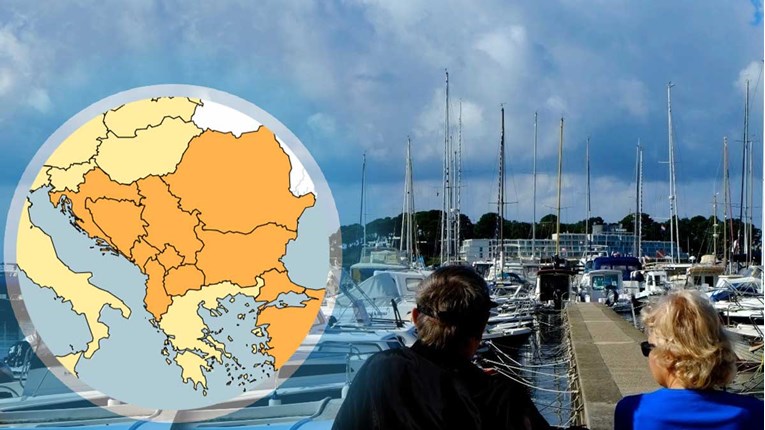Croatia on the Dutch orange list because it didn’t send up-to-date information?

AS WE REPORTED two days before, the Netherlands put Croatia on the orange list of countries due to an increase in the coronavirus cases.
Although it's not mandatory, the Dutch citizens are strongly recommended to go into a 14-day quarantine upon returning to their country. As we found out, it has already resulted in the Dutch starting to cancel their planned vacation in Croatia.
The government doesn't send up-to-date information?
The Dutch news portal NOS received a message earlier from a Dutch reader who said that the government put Croatia on the negative list for traveling, which resulted in many Dutch people, who had already booked an accommodation, are now not allowed to travel to Croatia. The reader is currently vacationing in Istria.
"People are surprised because in Istria, where a lot of Dutch people are vacationing, there's no coronavirus. People want to know why local warnings are not given instead of warnings for the entire country.
The Dutch government explained that the Croatian government didn't give up-to-date information, so there was nothing else for them to do than to issue warnings for the entire country," said the reader.
Spokesperson: Croatia should be asked why it doesn't send more information
The Dutch media also explained why, for example, the domestic tourists are told that Portugal is safe, and Croatia isn't.
Namely, the spokeswoman of the National Institute for Public Health and the Environment in the Netherlands, Loes Hartman, stated that it's the matter of the lack of data.
She explained that the European center for disease control receives coronavirus data from certain countries on a daily basis, which are then sent to the Institute.
"Croatia is divided into only two regions. The detailed information isn't available. There is not much difference between these two regions. One should ask Croatia why it sends so little data," she said for NOS.
She added that, for example, Portugal sent more specific data from their regions, so it didn't end up on the orange list.
What affected the status change of Croatia?
Hartman clarified that the status change of a certain country is a combination of many factors.
"It's a combination of several factors, and one side always prevails," she said and added that, for example, the number of new coronavirus cases in two weeks, tests, and new cases are taken into account.
It means that if the number of coronavirus cases is relatively low in a country, and then it increases, which can result in putting that country on a negative list.
"That's the estimation for each country, and each side can prevail," she concluded.
We contacted the ministry yesterday
We contacted the Ministry of Foreign Affairs and the Ministry of Tourism and asked what steps do they take to ensure the lifting of restrictions for Croatia, i.e., to mark Croatia by its regions.
"The Foreign Affairs Minister Gordan Grlic Radman contacted the Dutch colleague Stef Blok on several occasions at the beginning of this week, and he argumentatively pointed Croatia as a safe destination for the Dutch tourists," the Ministry of Foreign Affairs stated in their response.
From the Ministry of Tourism they answered that in collaboration with the Ministry of Foreign Affairs, Croatian Embassy in the Netherlands, and the Croatian Coronavirus Task Force, they are communicating intensely with the Dutch colleagues to reach an agreement and find the best and safest solution regarding the decision of the Dutch Ministry of Foreign Affairs that issued an orange warning for Croatia.
"We will notify you as soon as possible about the outcome of the agreement with the Dutch colleagues," they responded from the Ministry of Tourism.



 Facebook
Facebook
 Google
Google